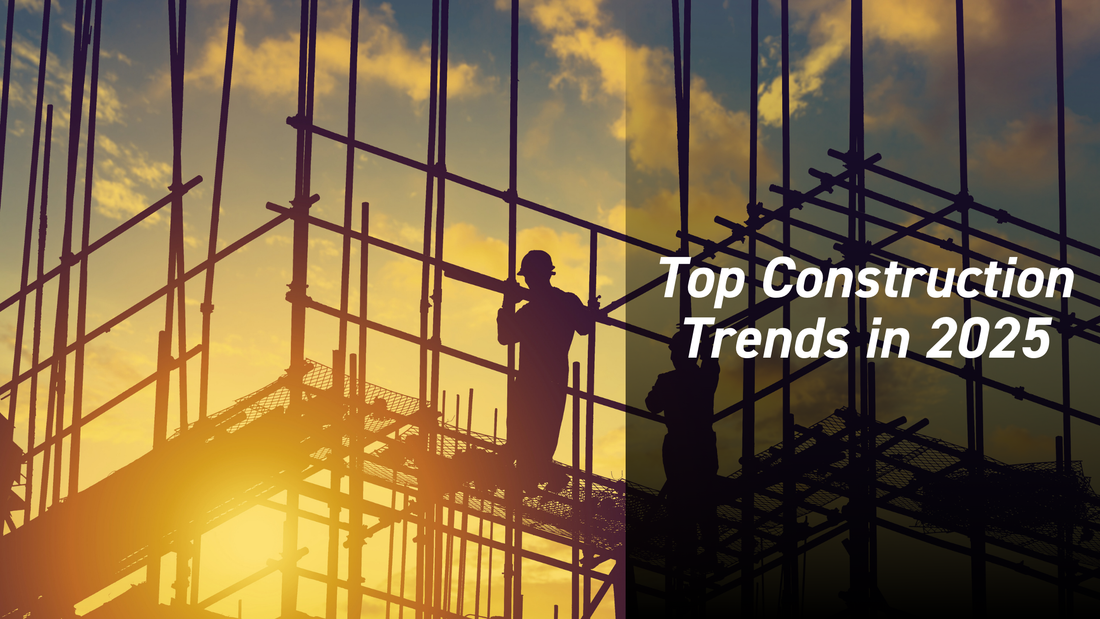
Top Construction Trends in 2025
2024 proved to be the year of construction tech, as technological advancements took revolutionised the industry. Will it be the same for 2025?
The previous year was a big win for AI, as more industries adapted to the technological advancements brought forth by artificial intelligence, including construction tech. Apart from AI, the industry also saw huge improvements in 3D modelling and advancements in inventory and equipment usage.
Sustainability remained at the forefront in construction, as more companies turned to greener and more sustainable practices and materials. Initiatives such as energy-efficient technologies and passive design principles were trending, and experts believe these will continue this year.
However, 2024 was also marred by issues with skilled labour shortages worldwide. On the flip side, the shortage of skilled workers, such as carpenters, electricians, and plumbers, led industry leaders to rethink their hiring practices and retention policies.
How is 2025 shaping up for the construction industry? Here are our top trend predictions and analysis for this year:
AI is Here to Stay
AI has changed how people work, and it is no different in the construction industry. Experts predict that AI’s use in the construction tech space will continue to expand, covering different aspects of construction projects, such as managing workflows, cost-effective estimations, and safer processes. AI, paired with powerful machine learning (ML), is set to improve how construction projects are managed through real-time analysis of large datasets, accurate timeline forecasts, and optimised resource allocation.
The Rise of Modular Construction
Modular and prefabricated construction have been around for decades. However, with global supply chain issues and skilled labour shortages plaguing the industry, modular construction is expected to become more widespread in 2025. There is also a higher demand for urban projects globally. Clients are looking for ways to reduce project costs while maintaining quality outcomes, and modular construction provides the ideal middle-ground solution.
Green is Still In
Gone are the days when sustainability was just a phase—it is now a necessity. Not only are government regulations requiring construction projects to adopt eco-friendly practices, but clients are also demanding sustainability. Using green materials and opting for energy-efficient designs not only helps the environment but has also become a way to differentiate construction projects for discerning clients.
Blueprints Go Digital
Building Information Modelling (BIM) continues to prove itself as an essential and integral component of every construction project. With more advanced BIM capabilities, all project data can be seamlessly shared among teams and stakeholders. By connecting BIM to Internet of Things (IoT) devices, stakeholders can access real-time data, enhancing control over the project lifecycle. This year, expect BIM to become even more powerful with AI integrations.
Reshaping Construction with 3D Printing
3D printing has been one of the most groundbreaking advancements in the construction industry, and it will continue to influence the field in 2025. 3D printing enables the creation of building components layer by layer using materials such as concrete and metals. Experts believe that 3D printing will further revolutionise the industry due to its sustainable and affordable practices.
Fortifying the Future
Amidst increasing adverse weather conditions around the globe, the construction industry faces the challenge of building more resilient projects in the face of climate change. In 2025, the demand for climate-adaptable infrastructure is expected to rise, as future projects must respond to the calls of Mother Nature.
The Rise of Drones
2025 will see an increased use of drones and robotics in projects to mitigate risks and improve overall safety conditions on site. Drones provide construction teams with access to real-time aerial surveys while enhancing the quality and frequency of project inspections. Robotics, on the other hand, is expected to take on mechanical and repetitive tasks on-site, such as demolition, brick-laying, and material handling.
Seeing the Future
No, the construction industry will not resort to fortune-telling in 2025. However, projects will increasingly utilise Augmented Reality (AR) and Virtual Reality (VR). With AR, digital designs can be overlaid onto physical spaces, allowing teams to identify potential problems early on. Meanwhile, VR offers users an immersive experience of a design yet to be built, enabling them to visualise the infrastructure ahead of its lifecycle. AR and VR are set to transform project management and client communication in 2025.
2025 is shaping up to be an exciting year for the construction industry, with technological advancements taking centre stage. AI, IoT, drones, and robotics are set to improve project management and stakeholder communication. Meanwhile, sustainability remains a top priority as companies evolve their processes by adopting eco-friendly practices and materials.
What trends are you keen to incorporate this year?